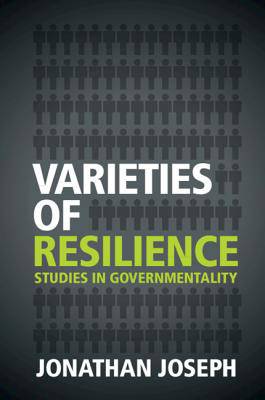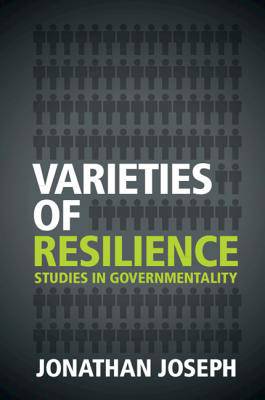
- Afhalen na 1 uur in een winkel met voorraad
- Gratis thuislevering in België vanaf € 30
- Ruim aanbod met 7 miljoen producten
- Afhalen na 1 uur in een winkel met voorraad
- Gratis thuislevering in België vanaf € 30
- Ruim aanbod met 7 miljoen producten
Zoeken
€ 33,95
+ 67 punten
Omschrijving
Resilience refers to the ability of individuals, groups and societies to withstand and recover from external shocks. This pioneering book-length comparative study examines resilience as it is experienced across different countries, such as the UK, US, France, Germany and EU. Furthermore it considers cases from policy sectors including national security, counterterrorism, civil protection, disaster risk reduction, critical infrastructure protection and overseas interventions. In doing so, Joseph provides an account of why it is that resilience has become such a popular policy topic, looking at its focus on complexity, the human and the role of resilient individuals and communities. Arguing that resilience has risen to prominence because it fits with a particularly Anglo-Saxon and neoliberal form of governance, Joseph discovers differing results across policy domains and national contexts, fomenting variations and tensions in the international discourse of resilience in policy-making.
Specificaties
Betrokkenen
- Auteur(s):
- Uitgeverij:
Inhoud
- Aantal bladzijden:
- 218
- Taal:
- Engels
Eigenschappen
- Productcode (EAN):
- 9781316601570
- Verschijningsdatum:
- 29/11/2018
- Uitvoering:
- Paperback
- Formaat:
- Trade paperback (VS)
- Afmetingen:
- 190 mm x 229 mm
- Gewicht:
- 362 g

Alleen bij Standaard Boekhandel
+ 67 punten op je klantenkaart van Standaard Boekhandel
Beoordelingen
We publiceren alleen reviews die voldoen aan de voorwaarden voor reviews. Bekijk onze voorwaarden voor reviews.











